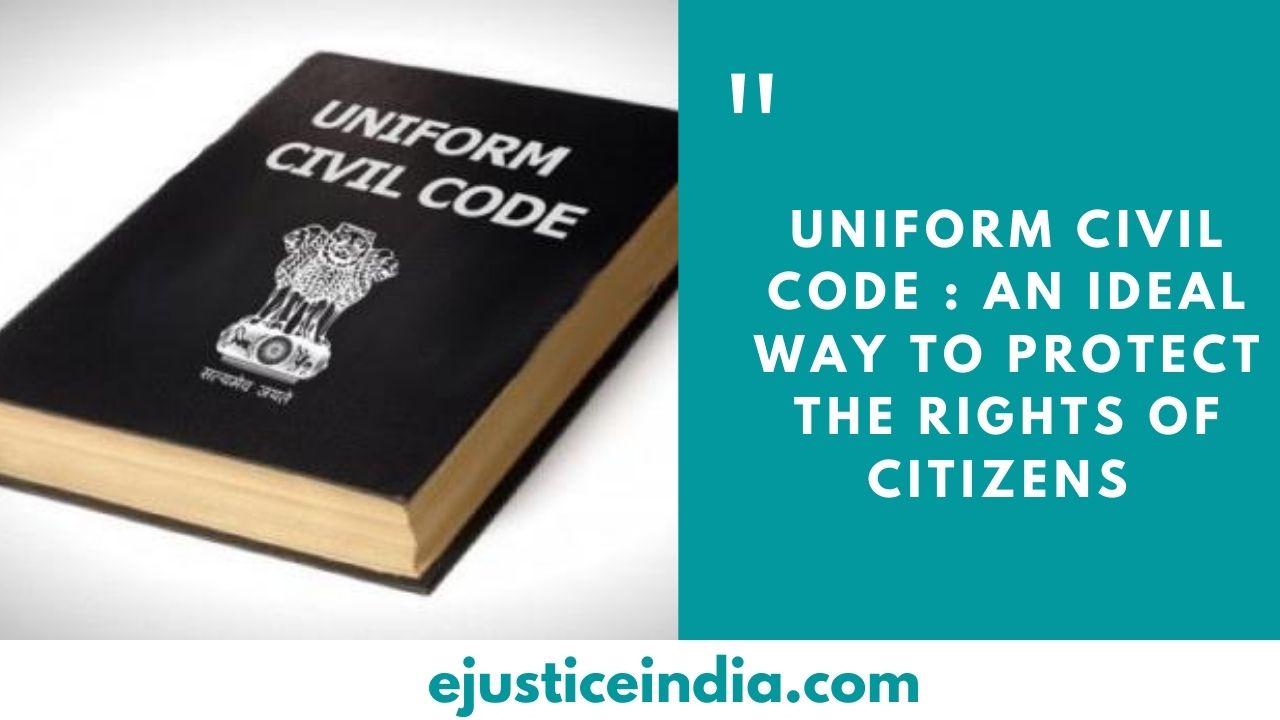Adultery (Section 497 of IPC)
Author : Ashish Kumar
Abstract
Adultery law in India is characterized by the Indian Penal Code Section 497. The adultery law has gone under the scanner of the legal executive a few times previously yet the courts including the Supreme Court held Section 497 legitimate. Yet, in the most recent case, the Supreme Court seat headed by Chief Justice Dipak Misra called the infidelity law “enemies of ladies” while hearing an appeal that tested Section 497 for being enemies of men and offering influence to ladies. The request was documented by non-inhabitant Keralite, Joseph Shine, who tested the lawfulness of IPC Section 497 read with Section 198(2) of the Criminal Procedure Code (CrPc). The CrPc Section 182(2) manages indictment for offenses against relationships.
IPC Section 497 states, “Whoever has sex with an individual who is and whom he knows or has motivation to accept to be the spouse of another man, without the assent or conspiracy of that man, such sex not adding up to the offense of assault, is blameworthy of the offense of infidelity.” The Supreme Court on August 2, stated, “The law is by all accounts supportive of ladies however is enemies of ladies in a grave apparent manner. As though with the assent of the spouse, wife can be exposed to another person’s craving. That is not Indian profound quality.” “Each accomplice of the marriage has equivalent duty. For what reason should the lady take more burden than the man? That is the explanation we call it antiquated,” the Supreme Court said.
The Supreme Court’s perception followed a testimony by the Center, which stated, “Infidelity ought to stay an offense. Weakening infidelity law will affect the sacredness of relationships. Making infidelity lawful will hurt marriage bonds.”
Introduction
Section 497 likewise expresses that a man saw as blameworthy of infidelity “will be rebuffed with detainment of either depiction for a term which may stretch out to five years, or with fine, or with both.” In instances of infidelity, the spouse will not be culpable as an abettor. So also, an unmarried lady can not be indicted for infidelity. The offense of infidelity is, as per Section 497, submitted by a man against a wedded man. The infidelity law has been scrutinized for regarding ladies as property claimed by men.
In case of a man submitting infidelity by methods for sex with a wedded lady or an unmarried lady, this law doesn’t give any privilege on the man’s significant other o arraign the two-timing spouse or the lady with whom the husband has enjoyed sex with. Basically, just a man can be a casualty or blamed/offender under the current perusing of Section 497 of the IPC.
In any case, the Union home service safeguarded Section 497 by alluding to a judgment went in the 1985 Sowmithri Vishnu versus Union of India case. Citing from the Supreme Court judgment, the home service stated, It is better, from the perspective of the interests of the general public, that at any rate a restricted class of two-faced relationship is deserving of law. The dependability of relationships isn’t ideal to be disdained. A three-judge Supreme Court seat headed by the then Chief Justice YV Chandrachud had maintained the lawfulness of Section 497 of the IPC.
The current infidelity law under Section 497 gets convoluted further in the perspective on an Amendment Act of 1976. This was the Marriage Laws (Amendment) Act. It makes a demonstration of infidelity legitimate ground for separate. Either companion can look for separate on the ground of infidelity. It expresses that even a solitary demonstration of intentional sexual act by either gathering to the marriage with any individual other than their companion comprises a ground for separate for the other life partner. Yet, Section 497 of the IPC doesn’t perceive a lady as an oppressed gathering on account of infidelity.
The Supreme Court decision proclaiming that adultery isn’t a wrongdoing gotten was broadly invited Thursday with a few legal counselors and activists saying it was an out of date provincial time law that regarded ladies as properties of their spouses.
A five-judge Constitution seat headed by Chief Justice Dipak Misra was consistent in striking down Section 497 of the Indian Penal Code managing the offense of infidelity, holding it clearly self-assertive, ancient and violative of the rights to fairness and equivalent chance to ladies.
Senior Supreme Court legal advisor Prashant Bhushan named the decision a fine judgment that got rid of an “out of date” law.
“Another fine judgment by the SC striking down the out of date law in Sec 497 of Penal code, which regards ladies as property of spouses and condemns infidelity (just of man who lays down with somebody’s significant other). Infidelity can be ground for separate yet not criminal,” Bhushan said on Twitter.
Congress MP and leader of ladies’ wing of the gathering Sushmita Dev concurred with him.
“Great choice to de-condemn infidelity. Additionally a law that doesn’t give ladies the option to sue her philanderer spouse and can’t act naturally sued in the event that she is in infidelity is inconsistent treatment and militates against her status as an individual separate element,” she tweeted.
The National Commission of Women boss Rekha Sharma, as well, invited the judgment and said it ought to have been eliminated quite a while past.
“This is a law from the British period, albeit British had discarded it long back, we were as yet stayed with it,” she said.
As per social lobbyist Ranjana Kumari, “man centric control” over ladies was unsuitable.
“We invite the judgment by the SC striking down the 158yr old law dependent on Victorian qualities, in Sec 497 of Penal code, which regards ladies as property of spouses and condemns infidelity. Man centric authority over ladies’ body unsuitable,” she tweeted.
While infidelity ought not be a criminal offense, the seat held that infidelity should keep on being treated as common wrong, and can be justification for disintegration of marriage or separation. There can’t be any social permit which devastates a home, Justice Misra said.
Segment 497 of the 158-year-old IPC says: “Whoever has sex with an individual who is and whom he knows or has motivation to accept to be the spouse of another man, without the assent or conspiracy of that man, such sex not adding up to the offense of assault, is blameworthy of the offense of infidelity.”
The offense of infidelity involved a greatest discipline of five years, or with fine, or both.
Conclusion
A three-judge Supreme Court seat headed by the then Chief Justice YV Chandrachud had maintained the defendability of Section 497 of the IPC.
The current infidelity law under Section 497 gets convoluted further in the perspective on an Amendment Act of 1976. This was the Marriage Laws (Amendment) Act. It makes a demonstration of infidelity substantial ground for separate. Either companion can look for separate on the ground of infidelity.
It expresses that even a solitary demonstration of deliberate sexual act by either gathering to the marriage with any individual other than their companion comprises a ground for separate for the other life partner. However, Section 497 of the IPC doesn’t perceive a lady as a distressed gathering on account of infidelity.


